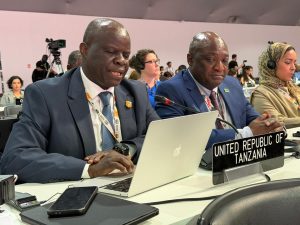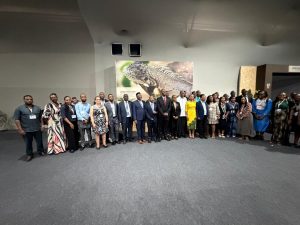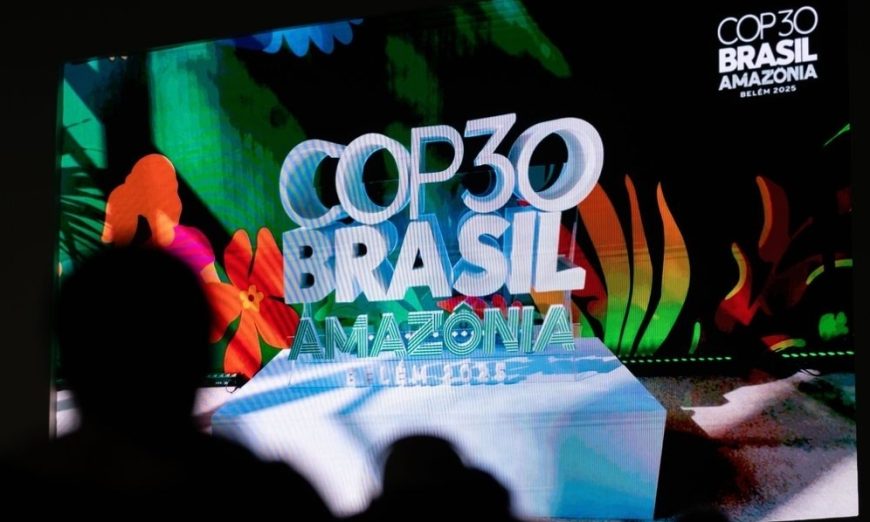Belém, Brazil – 11 November 2025
On the second day of COP30, Africa’s voice rang clear and resolute. At the heart of its message was a simple but powerful idea: climate action cannot succeed without gender equity.
Speaking on behalf of the African Group of Negotiators (AGN), Dr. Richard Muyungi laid out a vision that places women, youth, and vulnerable communities at the center of Africa’s climate agenda.

Gender in climate negotiations is not new. Since COP18 in Doha (2012), the international community has recognized that women play a crucial role in tackling climate change. COP21 in Paris went further, embedding gender considerations into the Paris Agreement itself.
Over the years, progress has been made. More women now participate in climate negotiations, and some countries have started including gender in their climate policies and projects.
But the journey has not been without challenges. Many promises remain underfunded, gender considerations are often treated as an afterthought, and there is limited accountability to ensure commitments turn into real action.
Dr. Muyungi’s speech at COP30 addressed these gaps head-on. “Adopting the Gender Action Plan is not optional,” he said, and added:
“It must be fully funded to empower women, youth, and vulnerable communities to participate meaningfully in adaptation, mitigation, and sustainable development initiatives.”
By putting gender at the core of Africa’s climate strategy, he signaled a shift from token gestures to practical, integrated solutions.
Gender, Dr. Muyungi emphasized, is interwoven with all aspects of climate action. Adaptation, for example, is an existential priority for Africa, with women disproportionately affected by floods, droughts, and food insecurity.
Mitigation plans and ambitious NDCs cannot succeed if women and local communities are left out. Even recovery from climate disasters demands gender-aware strategies, as women are often the first to bear the social and economic burden. Africa faces losses estimated at $395 billion in 2025 alone.
Dr. Muyungi also highlighted climate finance. Africa calls for predictable, grant-based funding to support Nationally Determined Contributions (NDCs), National Adaptation Plans (NAPs), and gender-responsive projects. Without financial backing, even the best plans risk remaining on paper.
Dr. Muyungi extended gender considerations into other key areas such as:
Just Transition Pathways: linking decarbonization to energy access, green jobs, and poverty alleviation, including clean cooking solutions for over 900 million Africans.
Health and agriculture: embedding health indicators into climate frameworks and ensuring climate-smart agriculture recognizes women’s central role in food systems.
Transparency and accountability: making sure gender progress is measurable and reported, a gap that has persisted for years.

The importance of this approach was echoed during the Africa Day High-Level Side Event at the Africa Pavilion. Experts and leaders stressed that at least 30% of climate finance should support African-led initiatives with gender equity integrated into project design.
From rural energy access to agriculture, panelists highlighted how women’s empowerment and climate resilience go hand in hand.
COP30, and Dr. Muyungi’s address in particular, marks a turning point. By mapping Africa’s gender priorities against past successes and failures, his statement shows a clear roadmap: climate policies must be inclusive, financed, measurable, and implemented.
Gender is no longer an add-on. It is central to Africa’s strategy for resilience, sustainable development, and empowerment.
As the summit continues, the world will be watching whether these commitments translate into concrete action, funding, and measurable results, ensuring that women and vulnerable communities are not only protected from climate risks but actively lead in shaping solutions.











